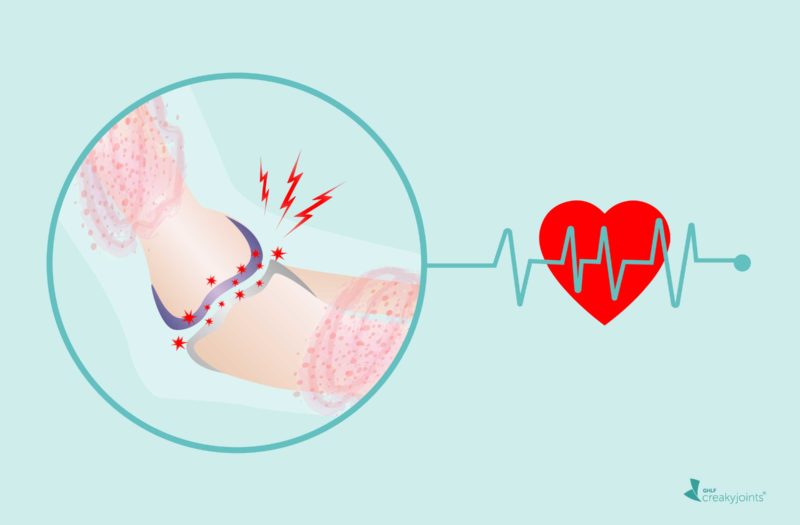It’s well-known that people with inflammatory arthritis, including psoriatic arthritis (PsA), have a higher than average risk of heart disease. In fact, PsA patients may have as much as a 40 percent increased risk of cardiovascular diseases compared with the general population.
The good news is that taking your medications as prescribed and working closely with your rheumatologist to control your disease may help to reduce that increased risk.
In a new study, published in the journal Annals of the Rheumatic Diseases, scientists from Hong Kong sought to determine whether one could predict the likelihood that a PsA patient would suffer a serious cardiovascular event based on their PsA disease activity score (Disease Activity in Psoriatic Arthritis, or DAPSA). Their findings imply that it is possible.
Researchers followed 189 people with psoriatic arthritis for about a decade; during that time, 27 patients had a cardiovascular event, such as a stroke or heart attack. People with higher disease activity scores were significantly more likely to fall into that group.
The association between higher PsA disease activity and an elevated risk of cardiovascular trouble held strong even after the authors adjusted for traditional cardiovascular disease risk factors such as obesity.
The results showed that patients who had the lowest survival rates for events like heart attacks and strokes had the highest disease activity scores. The DAPSA score, which is called a “composite measure” because it combines multiple aspects of measuring disease activity, appears to be better at predicting the likelihood of cardiovascular problems than single measures of disease activity, such as a tender/swollen joint count.
The DAPSA includes the following measures:
- Tender joint count
- Swollen joint count
- Level of C-reactive protein (CRP)
- Patient’s own assessment of disease activity
- Patient’s own assessment of pain
“The most important finding of this study is that [psoriatic arthritis disease activity score] is associated with a higher incident of [cardiovascular events], independent of traditional [cardiovascular] risk factors,” according to the study authors.
While there are many things everyone ought to be doing to keep their heart healthy — including eating plenty of fruits and vegetables, limiting saturated fat, and exercising regularly — this study suggests that, for people with PsA, aiming to keep your disease activity levels low is also extremely important.
However, more research will be needed to understand whether lowering disease activity can definitively reduce the risk of having heart attack or stroke. “Whether achieving sustained [low disease activity] defined by the DAPSA may reduce the risk of [cardiovascular events in PsA would need to be confirmed in large-scale prospective studies,” concluded the study authors.
Track Your Arthritis Disease Activity
Join ArthritisPower, CreakyJoints’ patient-centered research registry, to track your symptoms, disease activity, and medications — and share with your doctor. Learn more and sign up here.
Akirov A. Disease Activity Tool, Carotid Plaque Predicts Cardiovascular Events in Patients with Psoriatic Arthritis. Rheumatology Advisor. August 25, 2020. https://www.rheumatologyadvisor.com/home/topics/spondyloarthritis/carotid-plaque-dapsa-predicts-cv-events-in-patients-with-psa.
Ho Man Lam, S. DAPSA, carotid plaque and cardiovascular events in psoriatic arthritis: a longitudinal study.” Annals of the Rheumatic Diseases. July 2020. doi: http://dx.doi.org/10.1136/annrheumdis-2020-217595.






